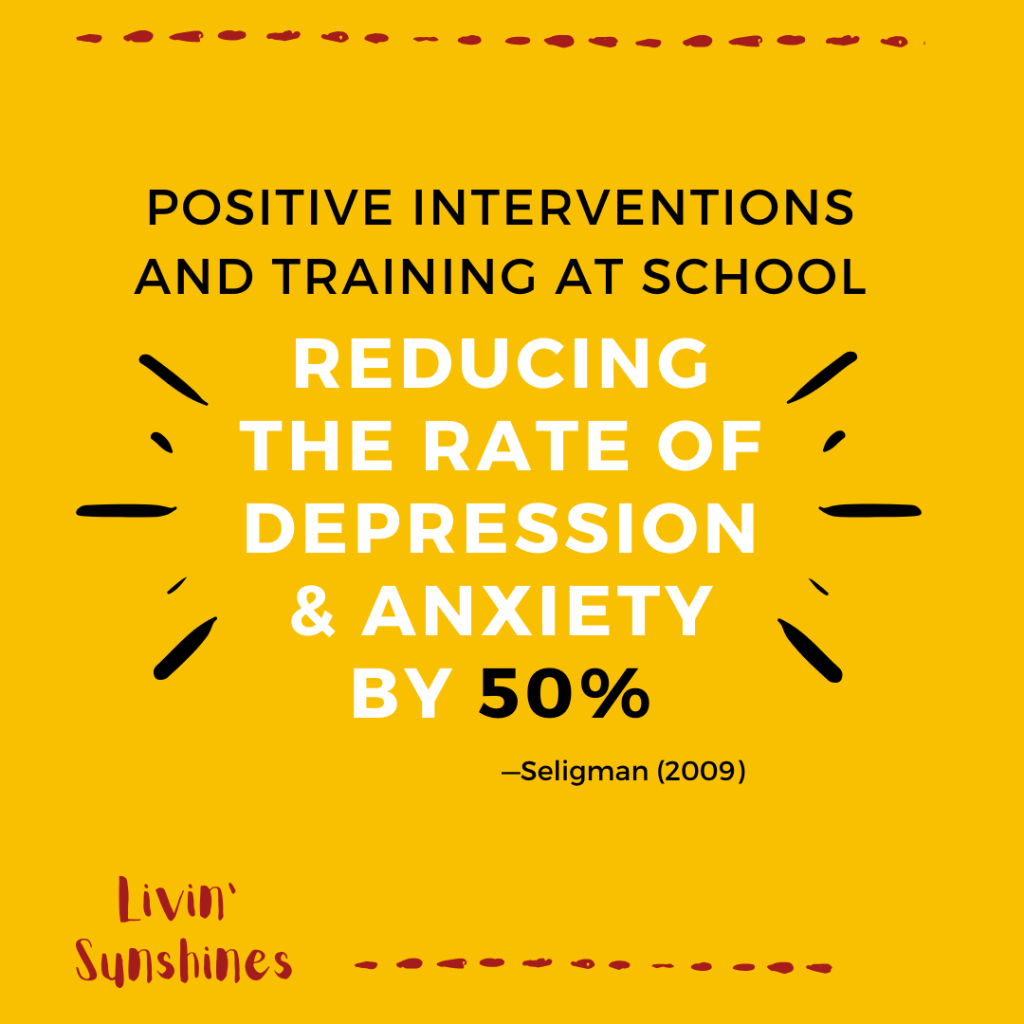This begins a series of posts based on ideas and theories grounded by Positive Psychology.
You might be asking, what is Positive Psychology? How is it different from other psychology studies? Recently, I chanced upon an introductory course on Coursea led by the Martin Seligman, the father of Positive Psychology, and it resonated with me so deeply that I feel the need to share all these powerful knowledge and ideas to the world – hence the birth of Livin’ Sunshines. ☀️
Positive psychology:
“The scientific study of human flourishing, and an applied approach to optimal functioning. It has also been defined as the study of the strengths and virtues that enable individuals, communities, and organisations to thrive.”
Positive Psychology Institute
To make it simpler, it focuses on:
- One’s character strengths instead of weaknesses
- Building optimism instead of ‘fixing the bad’
- Positive traits and states (gratitude, resilience, compassion)
- Life-satisfaction and fulfillment (flourishing and optimal living)
What I love about this approach is that it is forward-driven, focusing on skills and simple practices that you can apply to your daily life to not just to merely cope with your issues and challenges, but to thrive and live your best life.
Traditional psychology focuses on removing the weeds, tackling the negative thoughts and ‘repairing the bad’. Often looking at your childhood and past experiences to understand and uncover the roots of your problematic thoughts. However, that is not comprehensive to a person’s healing and growth, looking forward and building blocks of resilience and positive behaviour is much more sustainable and empowering.
Just think of your mind as a garden and your thoughts and mindset as plants and crops within it. As Seligman profoundly said,
It is like gardening, you can pull out all the weeds but if you don’t plant any flowers in it, it will still be an empty garden and not flourish.
And that is exactly where positive psychology interventions come in, to help us build a flourishing garden and minds filled with positivity, inspiration and uplifting thoughts. It removes us from the narrow focus on negativity, abnormality, pain and suffering that mental illness are so intrinsically linked to, and direct the attention to happiness, well-being, strengths and the true joys of living optimally, going beyond ‘fixing.’
Positive psychology research shows us that optimism can be learned and simple practices can be put in place to provide ground-shifting changes in our lives. Skills of well-being can be taught and have a lasting positive impact in all aspects of our daily lives, from work, home, relationships, educating children…
The fundamental idea is that we should be planting these seeds of positive education and thinking right from the beginning in children’s education, giving them the skills and tools to cope with situations constructively as they arise, which can prevent the onset of depression and other mental illnesses in later years.

One of the most robust studies of the effectiveness of positive education is The Penn Resiliency Program (PRP), where they teach students to deal with everyday problems through resilience building and encouraging positive emotions.
An assessment and study of more than 3000 children and youths between the ages of 8 – 22 have proven that PRP:
- Prevents clinical levels of depression and anxiety.
- Reduces conduct problems.
- Works equally well for children of different racial/ethnic backgrounds.
- Improves health and physical conditions-having fewer symptoms of physical illness, fewer illness doctor visits, better diet and more exercise.
Source: Resilience Training for Educators
So what did the they teach in the programme?
- Helping students to identify their character strengths and increase their use of these strengths in their daily lives.
- Positive emotions and coping skills that promote resilience and positive social relationships.
- Finding meaning and purpose in learning, developing a sense of well-being.
In a nutshell, it focuses on the holistic growth of children, not just the academic achievements but their development as a whole person by equipping them with everyday life skills. Imagine if every school dedicated part of their curriculum to teach students these essential skills, with well-being at the forefront, and proven benefits in all areas of their learning, wouldn’t we be creating better teachers, schools, communities and future leaders?
.

